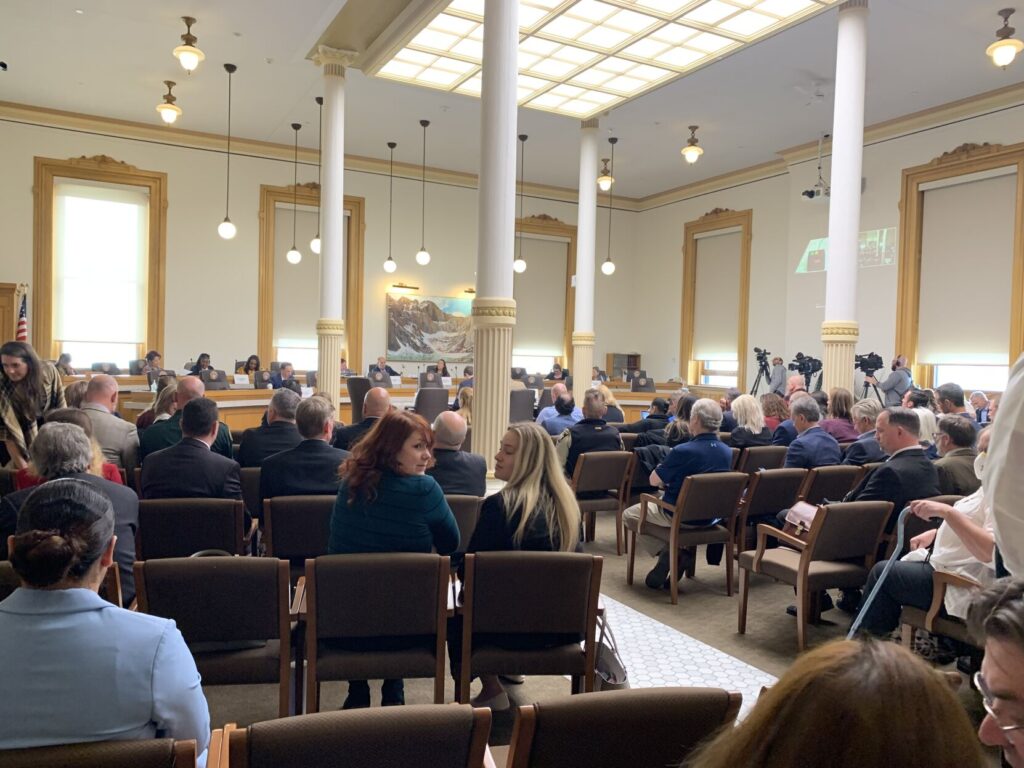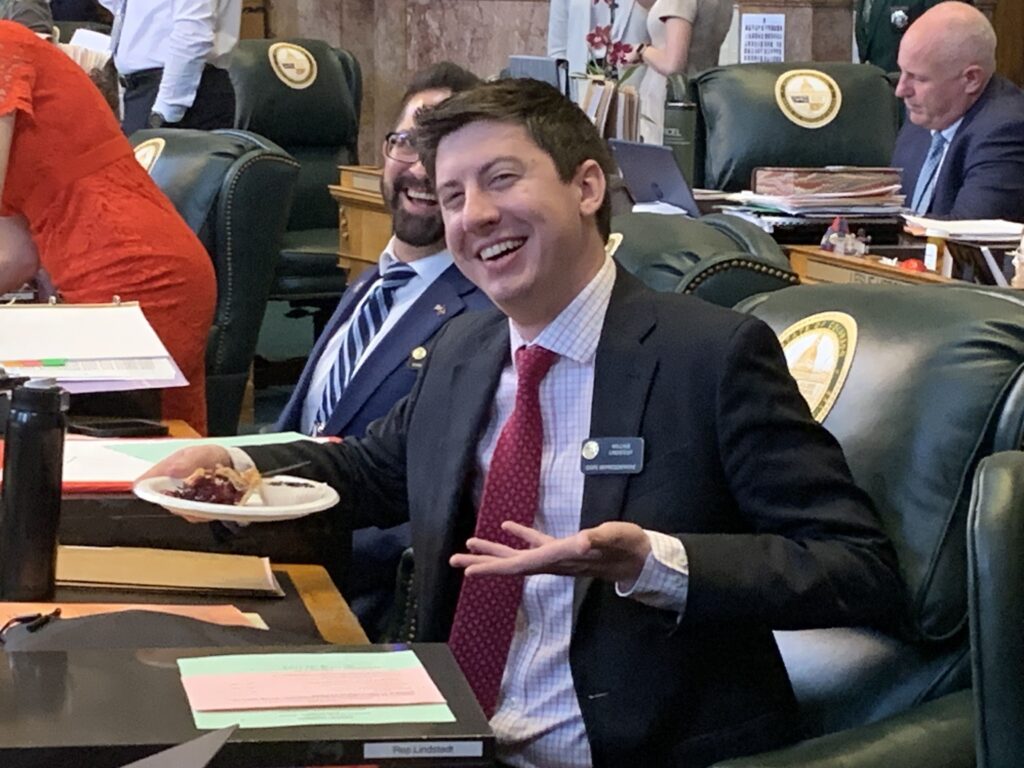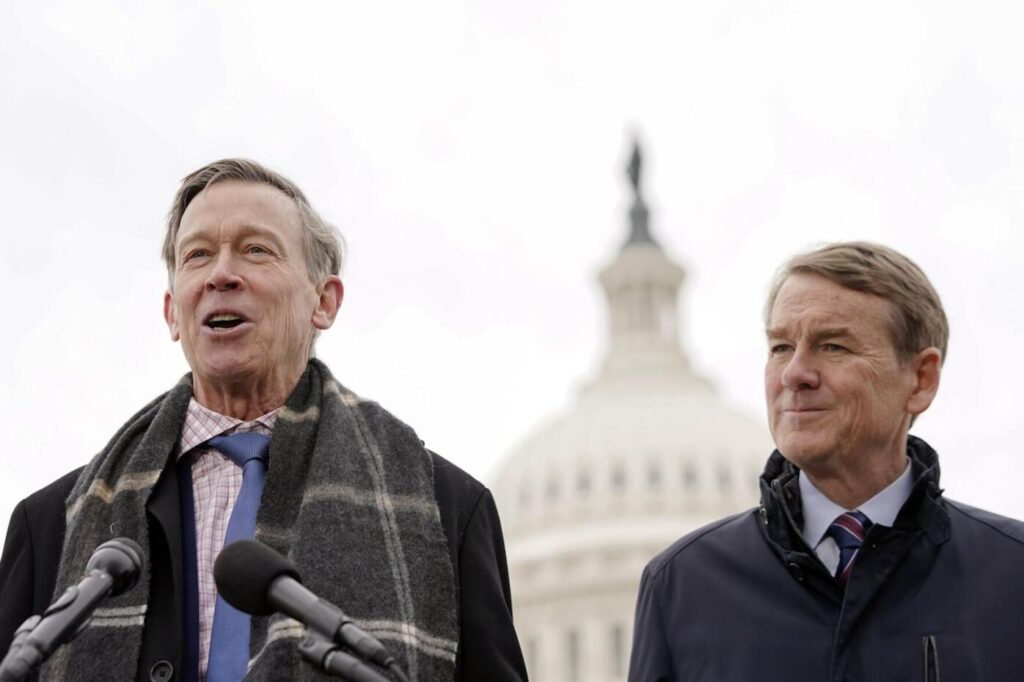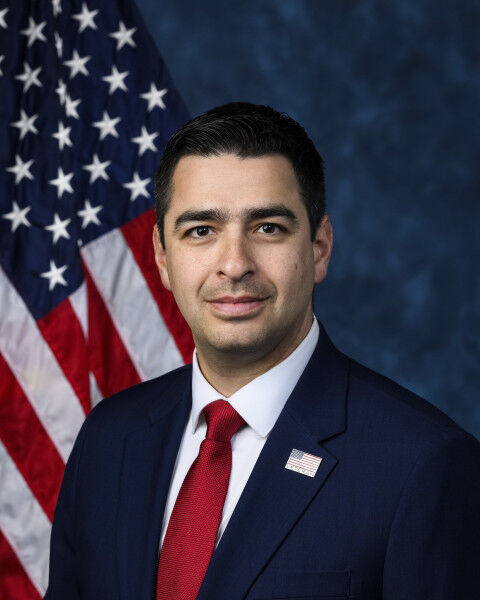Trump administration cancels $500 million in energy grants to Colorado

Colorado companies, higher education institutions and the state energy office are set to lose more than $500 million following the Trump administration’s decision to cancel hundreds of awards in 16 “blue” states.
While the entities awarded the grants are based in Colorado, some of the projects are actually located in other places, including in “red” states, such as Louisiana, Alabama, Mississippi, Wyoming and Kansas.
For some of those 34 grants awarded to Colorado entities, the cancellation comes just as the projects had been on schedule to be completed this year, including several with due dates next month.
Colorado officials described the cancellations as “politically motivated.” The Trump administration said the canceled projects would not have yielded a positive investment return on taxpayer dollars.
Here are the cancelled grants.
One grant, awarded by the U.S. Department of Energy’s Office of Clean Energy Demonstration, went to United Power, a rural electric cooperative serving Colorado’s northern Front Range.
Three more awards came from the federal energy department’s Grid Deployment Office. The agency’s Fossil Energy and Carbon Management offices awarded the rest.
The grant recipients in higher education programs included the Colorado State University, the Colorado School of Mines and the University of Colorado.
In addition to United Power, also on the cancellation list are awards to Tri-State Generation and Transmission, a Westminster-based cooperative that provides power to four states in the West, and Pioneer Energy, which produces hydrocarbon processing technologies.
The Colorado Energy Office was working on two grants that were also cancelled.
Also on the list is money for Tribal Energy Consortium, a “clean” energy initiative for 20 tribes in seven states, including Colorado’s Southern Ute and Ute Mountain tribes.
In January, the consortium was awarded $50 million from the Fossil Energy Office.
According to the Washington Examiner, the consortium is based in New Mexico, not Colorado. The grant had earlier raised eyebrows, given that the consortium’s total funding in the two previous years had never exceeded $50,000 annually.
The grant would ”empower tribal communities to reduce methane emissions on tribal-owned-and-operated marginal conventional wells and at oil and gas facilities on tribal lands,” the project’s description said.
Also canceled was nearly $3 million for BKV Dcarbon High West, a for-profit, publicly-traded company based in Denver. The Fossil Energy Office awarded the grant money to study “barge transportation of CO2 in the Gulf Coast region” for Alabama, Mississippi, and Louisiana. Those states are all represented by Republicans in the U.S. Senate, and their House members are also primarily Republican, including House Speaker Mike Johnson.
BKV’s website indicates that the company primarily operates in the Gulf Coast, Texas, and Pennsylvania, focusing on energy production with net-zero emissions.
While Tri-State Generation and Transmission is based in Westminster, its 45 member co-ops are in Wyoming, New Mexico and Kansas, in addition to Colorado.
The cooperative’s project, funded by the Grid Deployment Office was meant to “enhance the U.S. power grid’s ability to deliver reliable, affordable and cleaner energy” in the four states served by Tri-State. The project was initially funded in 2023 for a total of $26.8 million.
Many of the grants had matching requirements; Tri-State, for example, underwent a two-for-one match for its grant.
Tri-State said in 2023 that the program includes “support in rural communities for home weatherization, electrification and energy efficiency rebates, commercial and industrial energy efficiency improvements, community solar projects and electric vehicle charging.”
In addition, the benefits would target “low-income and energy-burdened rural communities while supporting Tri-State’s goals for emissions reductions,” the cooperative said.
In a statement, Tri-State CEO Duane Highley said the $26.8 million grant cancelation is disappointing.
“The award would have offset some of the costs of implementing our demand response and load management programs, and other tools to optimize the system. We had been working with DOE over the last two years on the award, after being selected in October 2023,” he said. “Over the next few days, we will review our appeal options. While disappointing, the withdrawal of this award does not change our plans to increase grid resiliency and reliability in the most affordable manner for our rural members in Wyoming, Nebraska, New Mexico and Colorado.”
Meanwhile, TDA Research, based in Wheat Ridge, was awarded two grants from the U.S. Department of Energy, including a contract for a pilot program to evaluate a carbon capture system, worth up to $49 million. The project is located in Wyoming; the initial grant was for $3 million with a completion date of 2027.
A second grant of $2.5 million went to a project that started in 2022 with a completion date of next month.
Meanwhile, a Colorado School of Mines project aimed to develop commercial sequestration of CO2. The project, based in Pueblo, began last year with a completion date of 2027, and it is expected to receive $32.6 million in federal funding out of a total cost of more than $40 million.
The project seeks to develop a large storage site capable of holding at least 50 million tons of CO2 over a 30-year period.
In a statement on Thursday, the Colorado Energy Office, called the cancelations “politically motivated.”
“While we have not formally received any official federal notices of termination, we understand that two Colorado projects that total $5 million are on DOE’s list, which specifically targets states where a majority of Americans cast their votes in favor of the Democratic nominee for President,” the state agency said. “This clearly politically motivated targeting of grants by the Administration will balloon energy costs, threaten grid reliability, increase pollution, and create instability in our business community.”
U.S. Sen. Michael Bennet, D-Denver, criticized Energy Secretary Chris Wright, saying the latter’s priority “is to serve the political agenda of President Trump, not the interests of our state or the American West.”
“Since taking office, (DOE) Secretary (Chris) Wright has repeatedly failed to uphold his commitment to protect Colorado’s interests,” the senator said. “The cancellation of these critical investments is the most recent example of Wright’s lack of support for his home state and flies in the face of the vision he claims to embrace of abundant, reliable, and affordable energy.”
The senator added: “These projects span those supporting basic energy infrastructure modernization, battery storage, and oil and gas equipment upgrades. Now, we risk rising energy prices, abandoning cutting-edge research, and losing critical expertise in our state.”
Bennet serves on the Senate’s Committee on Agriculture, Nutrition and Forestry, and on a related subcommittee on rural development and energy.
In a news release, the federal energy department said more than 300 awards were canceled nationwide, saving about $7.56 billion for American taxpayers.
The energy office said it has determined that the canceled projects “did not adequately advance the nation’s energy needs, were not economically viable, and would not provide a positive return on investment of taxpayer dollars.”
A quarter of the awards, valued at $3.1 billion, were approved between the election in November and Trump’s inauguration, the energy office said.
“On day one, the Energy Department began the critical task of reviewing billions of dollars in financial awards, many rushed through in the final months of the Biden administration with inadequate documentation by any reasonable business standard,” Wright said. “President Trump promised to protect taxpayer dollars and expand America’s supply of affordable, reliable, and secure energy. Today’s cancellation’s deliver on that commitment. Rest assured, the Energy Department will continue reviewing awards to ensure that every dollar works for the American people.”
Award recipients have 30 days to appeal the termination decision, the energy said the office, which added that some of the projects have already started that appeals process.













